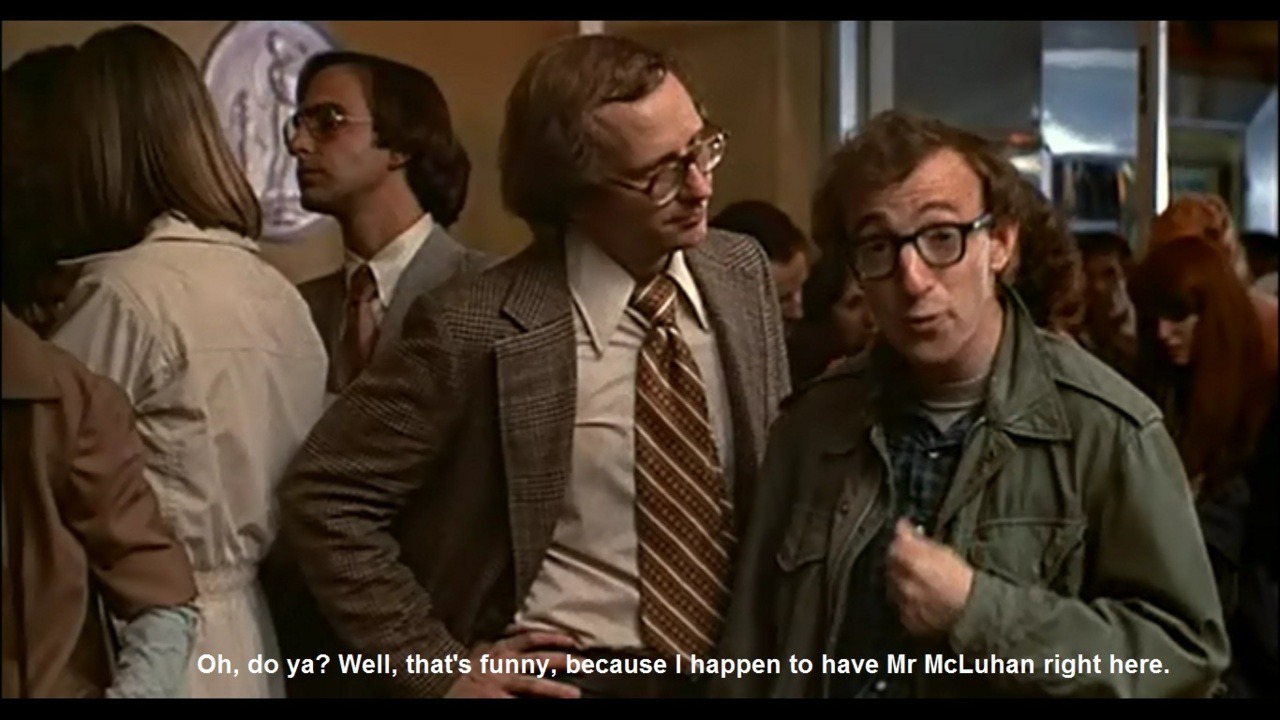All of us creative types have things we're naturally good at, and things we've learned to do, and things we aren't that good at (yet). This creates a creative trap: when approaching a project, we often work on the part we understand best — the part that scares us least.
So if you're good at plot, you write the plot first, and then fill in the characters later. If you're good at characters, you write up the characters and then feel your way towards a plot.
In game design, there's a tendency to work on the parts of the game that are "well understood," whether those are combat mechanics, or environment, or story, or whatever.
I worked on a game whose entire success hinged on whether some very advanced AI tech would work. The studio, however, hired a slew of people to build environments and animations.
I understand the impulse. You want to have something to show for it. If you're working on a very advanced, invisible back end, what can you show your investors? So you make some lovely environments. Also, it's relatively easy to hire people who can make lovely environments — compared to people who can make an expert system based on new research.
Of course, if you know what you're doing, it could be a valid decision to work on well-understood parts of the game, if you know in advance that they're going to take a long time to hone. Well-understood doesn't mean simple or fast, it just means you know the processes you're going to use. When we started with combat, it had something to do with how finicky combat is to implement convincingly.
Likewise, if you're a character-based writer and you simply have to inhabit the characters before you can move on to the plot, then it might be crucial to your own creative process that you start with the characters.
But working on the part that you feel comfortable with can become a trap.
By working on the parts that you're comfortable with, you necessarily reduce your options on the part that scares you.
Every creative choice you make on a project takes away some future choices. If I set a project in Germany in 1933, then it is very hard to choose a Mongolian steppe warrior as my main character. If I did set a project in Germany in 1933, and chose a Mongolian steppe warrior as my main character, then I pretty much have to tell a science fiction story.
So if you make a bunch of decisions on the easy stuff, you're restricting your range of choices for the hard stuff. That's bass ackwards. You want as much room as possible when you're doing the hard stuff, since you can probably handle a restricted range of choices on the easy stuff.
In other words, don't paint yourself into a corner on the easy stuff.
What happens if you do paint yourself into a corner on the easy stuff is either (a) you accept a poor solution on the hard stuff, because you don't see any good way to do it; or (b) you rip up a bunch of stuff that was working, because otherwise you can't make the hard stuff work.
In game development, if your game hangs on a fresh new gameplay mechanic, then try to get that working before you put any environments into the game. Spearhead, for example, created a three-on-three science fiction soccer game. The first playable build was pretty much dots chasing another dot around a grey box; but the fun was already there.
In screenplay writing, if you're weak on characters, then consider writing only the faintest of sketchiest of plot outlines, and then really spending some time thinking about what characters could most interestingly inhabit that plot — as opposed to working out a really detailed plot and then trying to shoehorn some characters into it.
Or, if you're good on characters but weak on plot, take some relatively simple characters, and build a fairly detailed, surprising-yet-inevitable plot around them before you move to fleshing them out.
You get several benefits from this. One, you develop your creative muscles. If you are good at situps but bad at pushups, and you do a bunch of pushups, you will have stronger biceps, and now you can do both pushups and situps.
Two, your creative project is strong both in the area you find hard and the area you find easy, instead of just in the area you find easy.
Three, when you're working on stuff that scares you, you will often make more interesting choices than you would if you were working on stuff you understand well. Creativity is usually a dance between structure and improvisation. If you force yourself to improvise, you'll come up with stuff you might not otherwise have thought of.
Four, if you work on the hard stuff first, and utterly fail, you haven't wasted any time on the easy stuff. The finicky AI tech never really worked, and the studio was left with a whole bunch of bespoke environments and animations. If you really hate writing a character based screenplay, then after you've banged some characters around for a few weeks, you might just toss the project and go write some hook-driven action thriller where you can get away with snappy banter in the place of actual characterization. If you really cannot write an interesting plot, then you'll find that out when you attempt to plot out your suspense thriller, and you can chuck it and go write that achingly personal coming of age story.
So: work on the part that scares you first!
So if you're good at plot, you write the plot first, and then fill in the characters later. If you're good at characters, you write up the characters and then feel your way towards a plot.
In game design, there's a tendency to work on the parts of the game that are "well understood," whether those are combat mechanics, or environment, or story, or whatever.
I worked on a game whose entire success hinged on whether some very advanced AI tech would work. The studio, however, hired a slew of people to build environments and animations.
I understand the impulse. You want to have something to show for it. If you're working on a very advanced, invisible back end, what can you show your investors? So you make some lovely environments. Also, it's relatively easy to hire people who can make lovely environments — compared to people who can make an expert system based on new research.
Of course, if you know what you're doing, it could be a valid decision to work on well-understood parts of the game, if you know in advance that they're going to take a long time to hone. Well-understood doesn't mean simple or fast, it just means you know the processes you're going to use. When we started with combat, it had something to do with how finicky combat is to implement convincingly.
Likewise, if you're a character-based writer and you simply have to inhabit the characters before you can move on to the plot, then it might be crucial to your own creative process that you start with the characters.
But working on the part that you feel comfortable with can become a trap.
By working on the parts that you're comfortable with, you necessarily reduce your options on the part that scares you.
Every creative choice you make on a project takes away some future choices. If I set a project in Germany in 1933, then it is very hard to choose a Mongolian steppe warrior as my main character. If I did set a project in Germany in 1933, and chose a Mongolian steppe warrior as my main character, then I pretty much have to tell a science fiction story.
So if you make a bunch of decisions on the easy stuff, you're restricting your range of choices for the hard stuff. That's bass ackwards. You want as much room as possible when you're doing the hard stuff, since you can probably handle a restricted range of choices on the easy stuff.
In other words, don't paint yourself into a corner on the easy stuff.
What happens if you do paint yourself into a corner on the easy stuff is either (a) you accept a poor solution on the hard stuff, because you don't see any good way to do it; or (b) you rip up a bunch of stuff that was working, because otherwise you can't make the hard stuff work.
In game development, if your game hangs on a fresh new gameplay mechanic, then try to get that working before you put any environments into the game. Spearhead, for example, created a three-on-three science fiction soccer game. The first playable build was pretty much dots chasing another dot around a grey box; but the fun was already there.
In screenplay writing, if you're weak on characters, then consider writing only the faintest of sketchiest of plot outlines, and then really spending some time thinking about what characters could most interestingly inhabit that plot — as opposed to working out a really detailed plot and then trying to shoehorn some characters into it.
Or, if you're good on characters but weak on plot, take some relatively simple characters, and build a fairly detailed, surprising-yet-inevitable plot around them before you move to fleshing them out.
You get several benefits from this. One, you develop your creative muscles. If you are good at situps but bad at pushups, and you do a bunch of pushups, you will have stronger biceps, and now you can do both pushups and situps.
Two, your creative project is strong both in the area you find hard and the area you find easy, instead of just in the area you find easy.
Three, when you're working on stuff that scares you, you will often make more interesting choices than you would if you were working on stuff you understand well. Creativity is usually a dance between structure and improvisation. If you force yourself to improvise, you'll come up with stuff you might not otherwise have thought of.
Four, if you work on the hard stuff first, and utterly fail, you haven't wasted any time on the easy stuff. The finicky AI tech never really worked, and the studio was left with a whole bunch of bespoke environments and animations. If you really hate writing a character based screenplay, then after you've banged some characters around for a few weeks, you might just toss the project and go write some hook-driven action thriller where you can get away with snappy banter in the place of actual characterization. If you really cannot write an interesting plot, then you'll find that out when you attempt to plot out your suspense thriller, and you can chuck it and go write that achingly personal coming of age story.
So: work on the part that scares you first!










